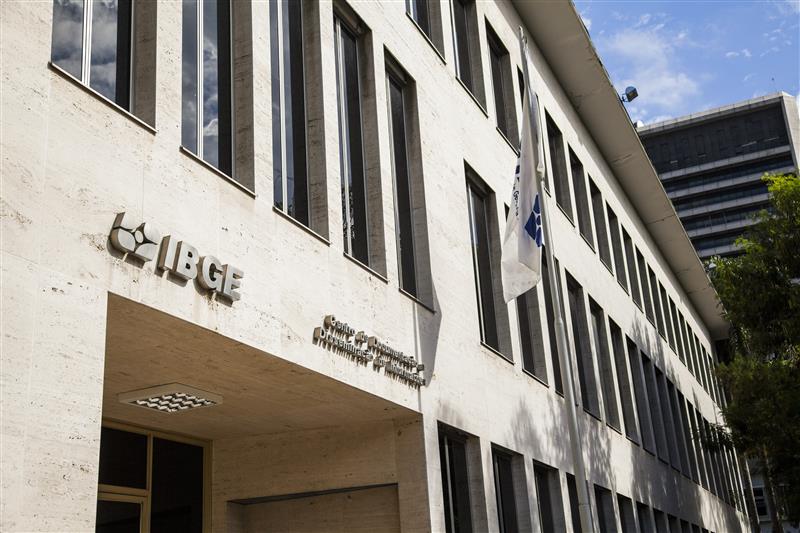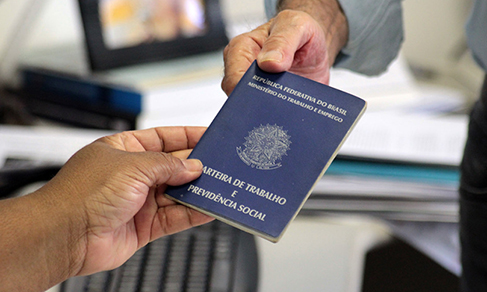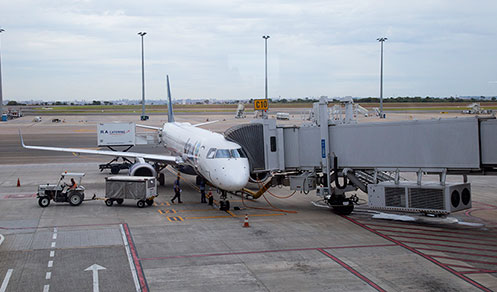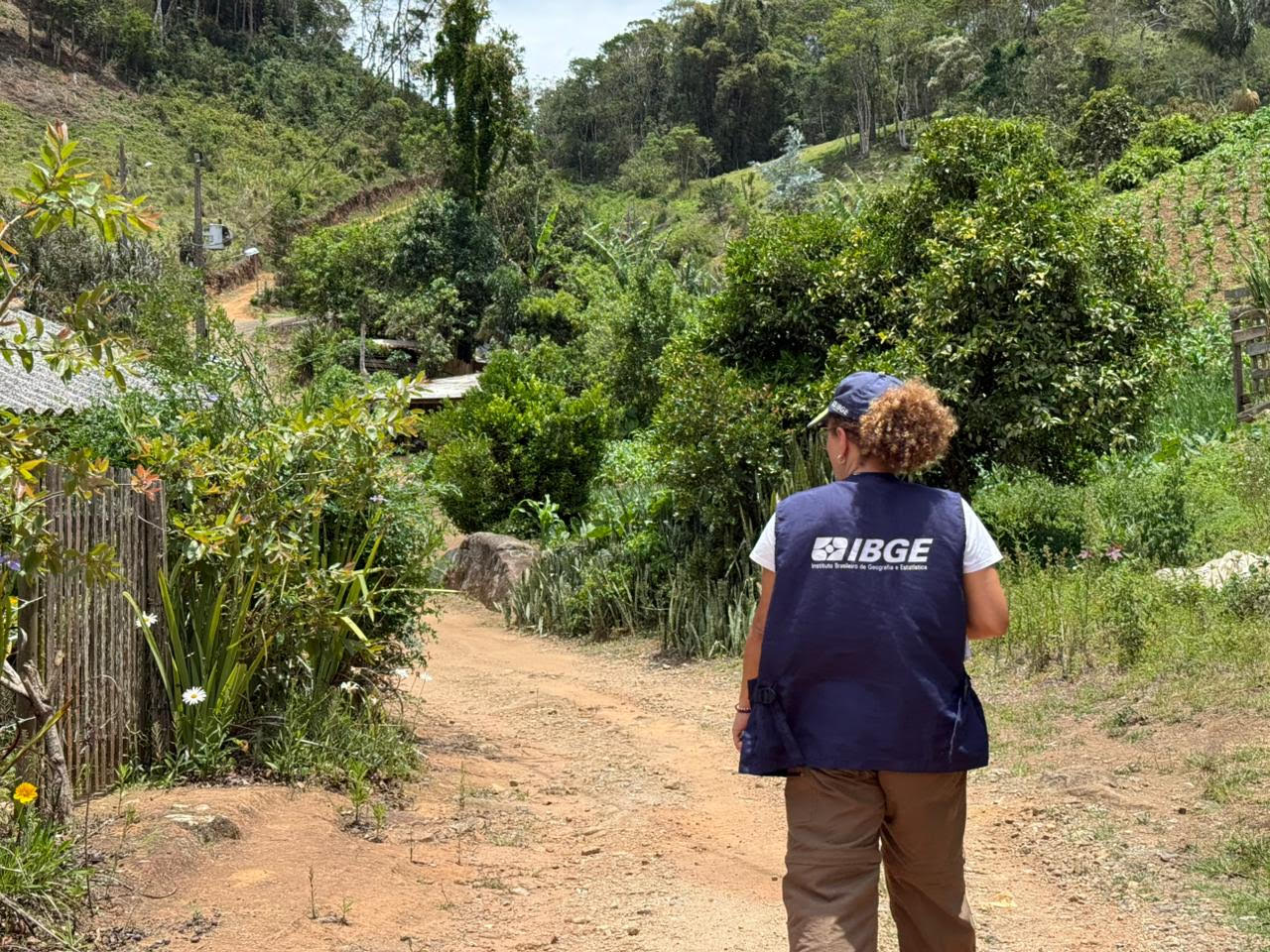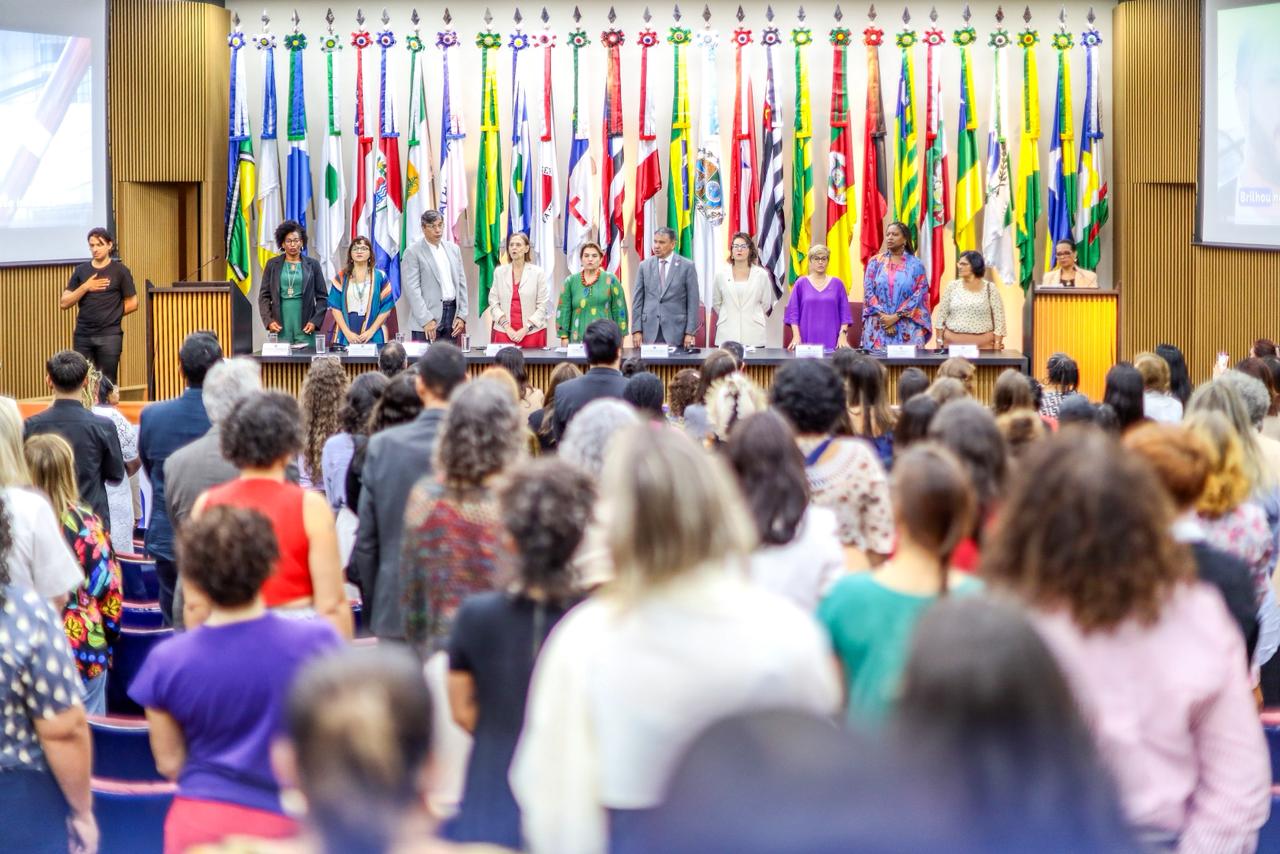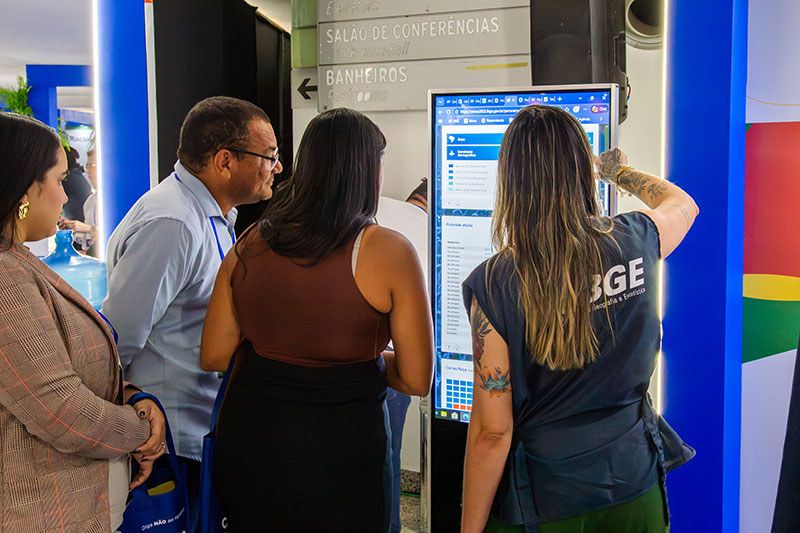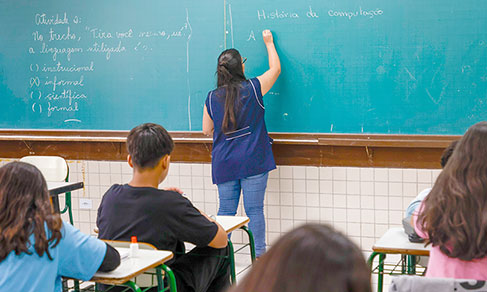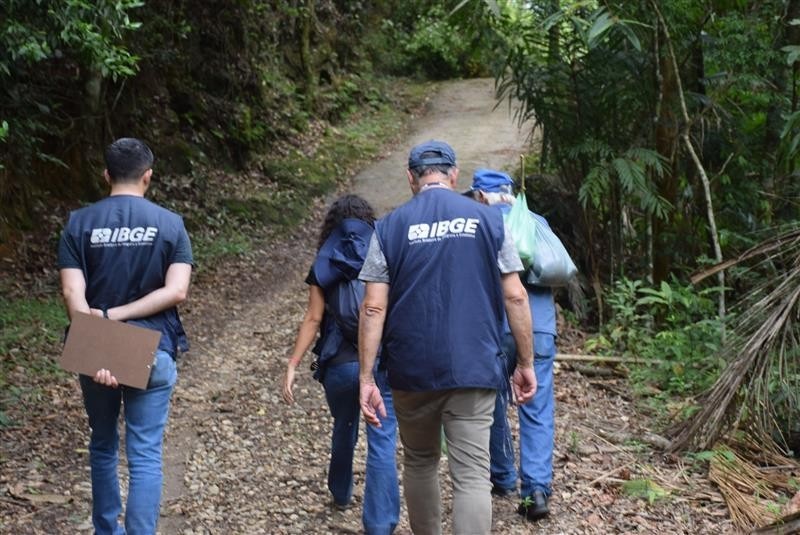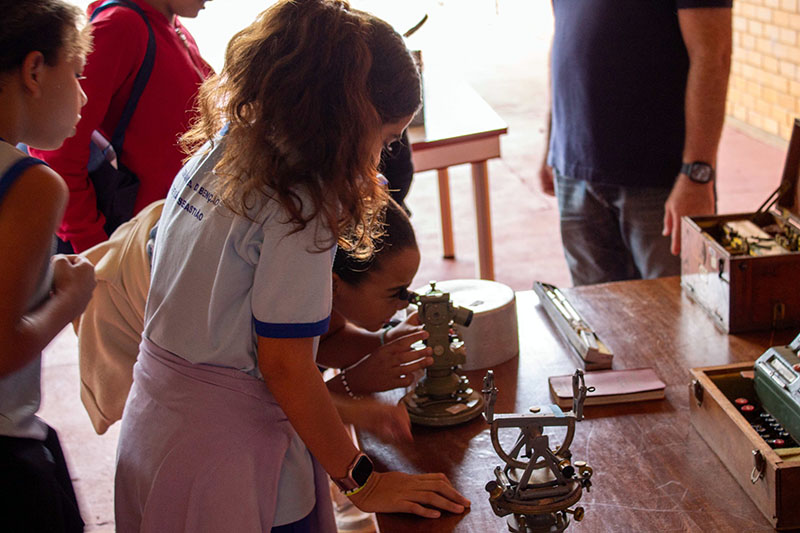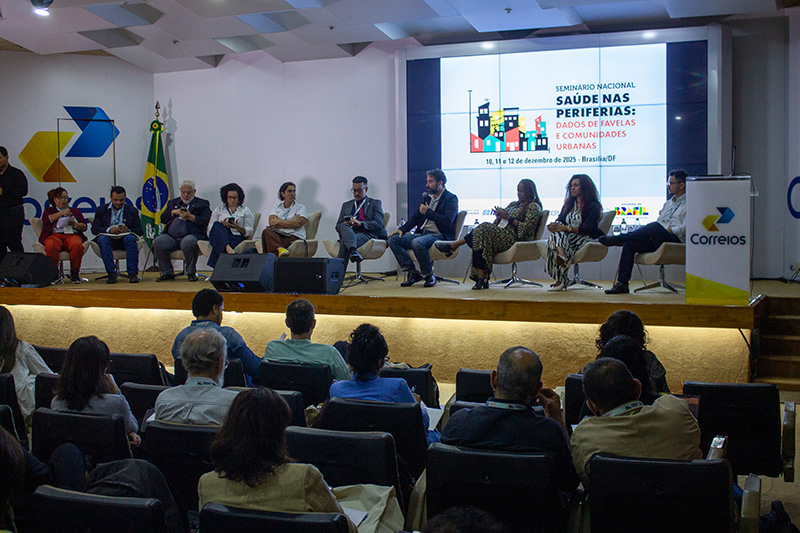Triple Forum
Forum discusses potentialities and challenges for youth indicators in Digital Era
June 16, 2025 02h01 PM | Last Updated: June 19, 2025 02h16 PM
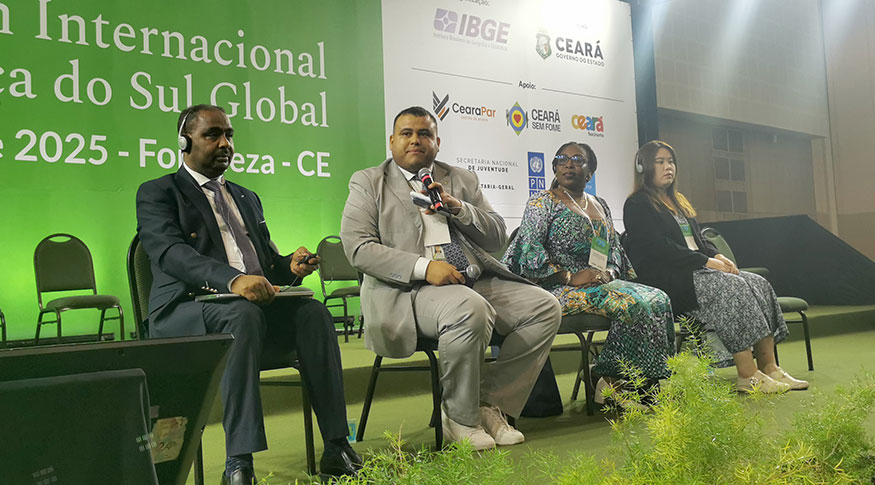
Session included representatives from Guinea-Bissau, China, Ethiopia and Brazil - Picture: @graoamarca
The plenary session of the last day of the Triple Forum was dedicated to reflecting on youths, in the plural. Held on Friday morning (June 13), the session "Current and new youth indicators under the perspective of the Global South in the Digital Era" was marked by the diversity of discussions on youth, but also the urgency of counter-hegemonic narratives and digital inclusion. The IBGE Ceará Brazil Global South Letter was signed in the afternoon. It anticipates the creation of the Forum of Young Researchers of the Global South, "so as the current generation can have the bases to compete for opportunities in the Digital Era, beginning with the fight against inequality, either real or digital, creating jobs and income from the investments in innovation and knowledge.
Nilson Florentino Júnior, Director of Youth Transversal Public Policies of the National Secretariat of Youth and of the Coordination of the BRICS Youth Council, mediated the discussion, which included representatives from Guinea-Bissau, China, Ethiopia and Brazil. The session was organized by the National Secretariat of Youth of the Presidency of the Republic in partnership with IBGE and the UNDP.
In the perspective of Doctor Artemisa Candé, Dean of the University of the International Integration of the African-Brazilian Lusophony (Unilab) in Guinea-Bissau, to understand what it is - or what they are - these youths is key to build associated indicators. "While they talk about youth indicators, we are still talking about how this youth is. In the African context, youth is not a matter of age range. We have structural, social and economic factors to define such youth," explained her. Candé commented on the unequal access to knowledge and resources of the Digital Era. For example, Unilab, the only university that integrates Brazil and Portuguese-spoken African countries, is considered "a dream place for the African youth," according to the professor, and difficulties are not limited to the number of seats. Digital exclusion makes enrollment and selection processes impossible for most of the youngsters.
"We are not in the digital era. We are following the others in the digital era," emphasized Candé, stressing the need of a more inclusive, more supportive grammar. "Whenever we talk about digital inclusion, we are talking about equity as well. Today, everyone has a mobile phone at hand and thinks it is a simple thing, but it is not." Candé gave the example of the situation in Guinea-Bissau, where the access to the Internet is basically through mobile data. It is a reality that, first of all, needs to democratize the accesses, like the expansion of optical fibers and free wi-fi in public spaces. "If I want to talk with my family, I have to schedule it for them to acquire mobile data to access the Internet and talk with each other. We are talking about a Global South in which the periphery doesn´t have access to libraries, in which mobile phones are a privilege of a few. We cannot produce knowledge without surveying."
"Youth should be thought as a public problem"
The event counted with the participation of Sociologist Paulo Ramos, from the Brazilin Center for Analysis and Planning (Cebrap) and from the Brazilian National Youth Observatory, and of Ronal Luiz dos Santos, National Secretary of Youth of the Secretariat General of the Presidency of the Republic and President of the BRICS Youth Council.
Paulo Ramos is a researcher in the areas of youth, violence, social movements and their interlocution with the State, inequality and racism. "Our major concern is how to gather data patterns with quality, scientific patterns, as forms of overcoming inequality, especially in the Brazilian outskirts and now in the world outskirts as well. He explained the work of the National Youth Observatory, which is being thought aiming at producing knowledge to support the formulation, implementation, monitoring and assessment of public policies specifically geared at youth. Among the results expected is the production, systematization and dissemination of data on the conditions of youngsters aged between 15 and 29 years in Brazil, as well as publications and the construction of a digital platform that will gather all the information raised and make it available for the public in general.
The way how society approached the theme youth was brought to the discussion as well. Ramos reinforced that this way is often inappropriate, as it brings a number of stigmas, like those saying that youngsters will "save society". "It is positive form, yet it brings a problem. All the hope to solve problems created by old people is laid on them. Thenceforth the stigma of youngsters as a being "in transition", from whom the future depends on, yet occupying a non-place today. "They are not children nor adults and should be controlled by the State because they are a potential disorder agent. And, whenever linked to the racial and social class stigmas, these youngsters are always a potential criminal. If a crime was not committed yet, it is required to prevent the crime to happen."
Thinking about how youth is treated by the institutions, Ramos emphasized the need to think it as a public problem, leveraging study lines, betting on academic productions that produce inputs for public policies in Brazil, for this specific group.
In the same way, Ronald Luz dos Santos, known as Ronald Sorriso, explained the work of the National Secretariat of Youth in order to produce data to support these policies. He perceives possibilities of partnerships with Mercosur neighbors, other Portuguese-speaking countries and BRICS countries. "Youth is the perspective of future as it thinks in the long term, but it is also present because there is no future with present and things need to be materialized now. We don´t want to inherit a ready future. We want to build a future that is ours, with our hands, and it should be done in the present," stated him.
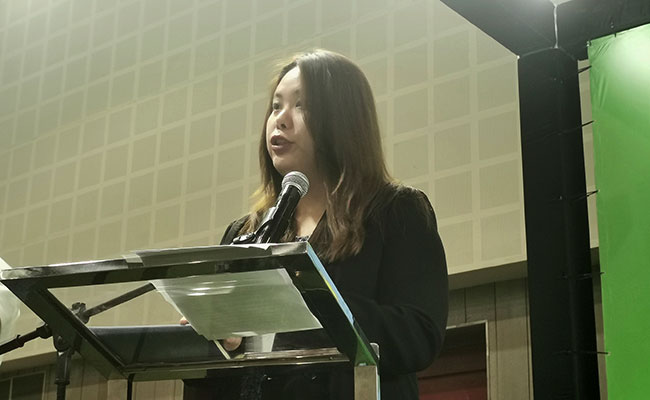
Chinese Jing Jiayi approached the theme digital misinformation - Picture: @graoamarca
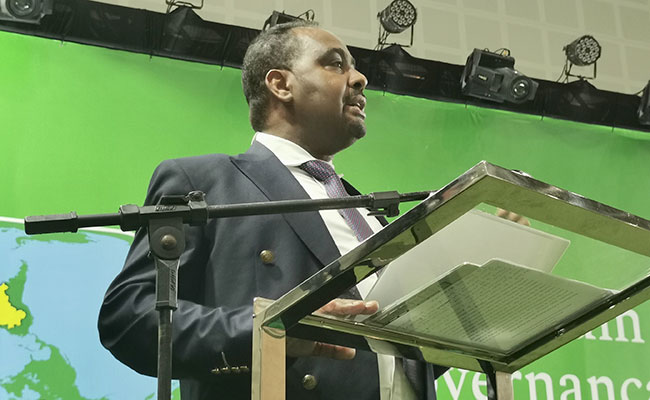
Shumete Gisaw, from Ethiopia, bets on new narratives for youth - Picture: @graoamarca
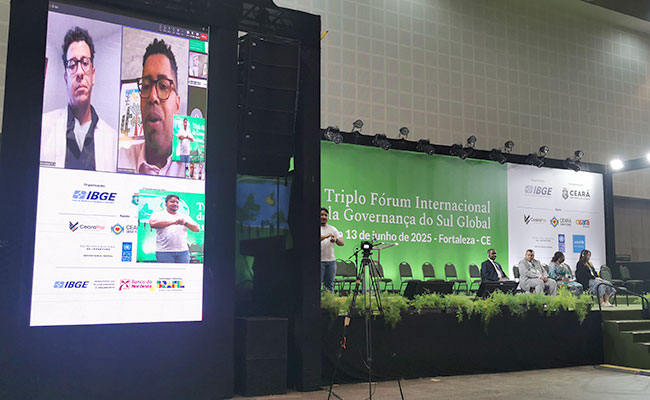
Paulo Ramos and Ronald Sorriso participate in the on-line discussion - Picture: @graoamarca
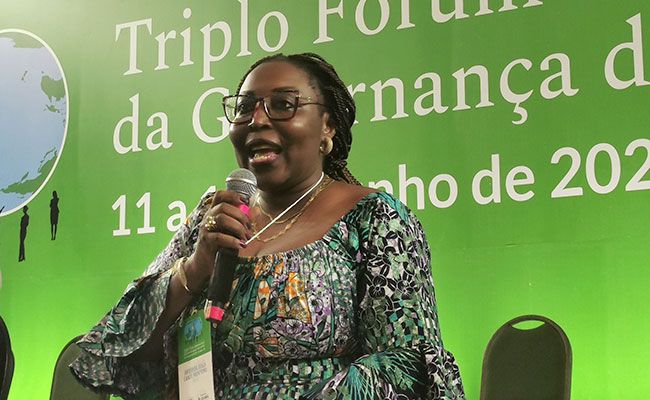
Artemisa Candé, from Guinea-Bissau, commented on inequalities in the access of resources in the Digital Era - Picture: @graoamarca
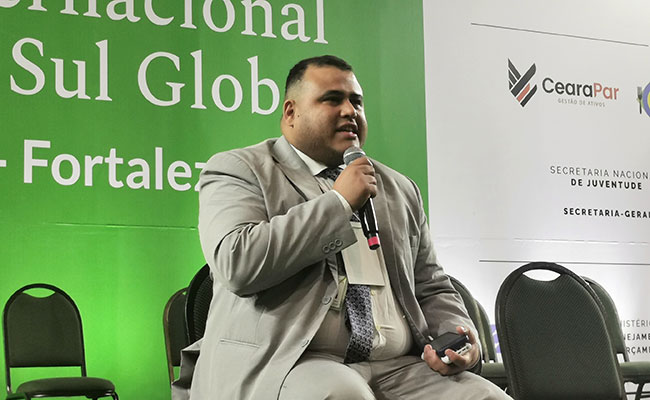
Nilson Florentino Júnior, from the National Secretariat of Youth and from the Coordination of the BRICS Youth Council, mediated the discussion - Picture: @graoamarca
"Let´s promote brilliant minds"
It was the basic speech of Shumete Gisaw, from Ethiopia, Undersecretary General for Technological Innovations and Digitalization Enhancement) Organization of Southern Cooperation (OSC). The OSC is a technical cooperation organization between developing countries in the Global South, allowing States, international organizations, scholars, civil society and the private sector to collaborate and share knowledge and initiatives.
Gisaw proposes a new narrative for the Global South, mostly formed by youngsters. "With the inadequacy of current indicators, we need to challenge what is coming from the past. Social indicators developed by institutions from the Global North are often linear, standardized, reflecting their development models." As a result, explained him, they fail to capture the different context of rights and realities of the Global South youth, like the informal economies and own cultures.
"We need to create a forum of young researchers in the Global South. I believe in this. To build their own narrative, empowering and producing their own surveys. Let´s promote a practical movement of brilliant minds of youngsters of the Global South, able to define and redefine their own future, in a collective way," stated him.
China highlights importance of digital literacy to fight misinformation
Chinese Jing Jiayi, Secretary General of the World Communication Center of the Chinese Academy of Social Sciences, presented a slightly different reality concerning her country, in which the problem is not digital inclusion anymore, but rather the challenges that connectivity brings for the youth.
"We are increasingly defined by digital connectivity." On the one hand, she highlighted the problem of information pollution in times of social media; on the other hand, its openness for innovation and resilience. She explained that the digital technology reaches mountainous and rural areas, allowing farmers and artisans, for instance, to create small companies that produce revenue and access to education of quality.
In the metropoles, like Beijing, the so-called "digital self-determination" happens. "The 'Z generation', as we call them here, is not receiving digital information in a passive way. They don´t expect any authorization to participate in the future, they are building the future for themselves." However, she highlighted, it is required to ask who is being silenced and who is being heard. "The digital scenario is still unequal. We have a lot of misinformation and the domain of some specific platforms, which limit the voices on-line." So, the need to promote partnerships of digital literacy for the youth, linking Brazil, China and other Global South countries around the resources of digital education.
About the Triple Forum
The Triple Forum was organized by the Brazilian Institute of Geography and Statistics (IBGE) in partnership with the Government of the State of Ceará on June 11-13 at the Ceará Events Center (999 Washington Soares Avenue, West Pavilion access, gate C). The event was supported by the United Nations Development Program (UNDP), Bank of the Northeast of Brazil (BNB), United Nations Children´s Fund (UNICEF), Ceará Without Hunger, Company of Participation and Assets Management of Ceará S.A. (Ceará Par), Secretariat of Tourism of Ceará, National Secretariat of Youth - General Secretariat of the Presidency of the Republic and other partners. Center Plenary sessions were streamed through IBGE digital, and through the IBGE´s official channels IBGE Digital, YouTube, Instagram, TikTok and Facebook.







